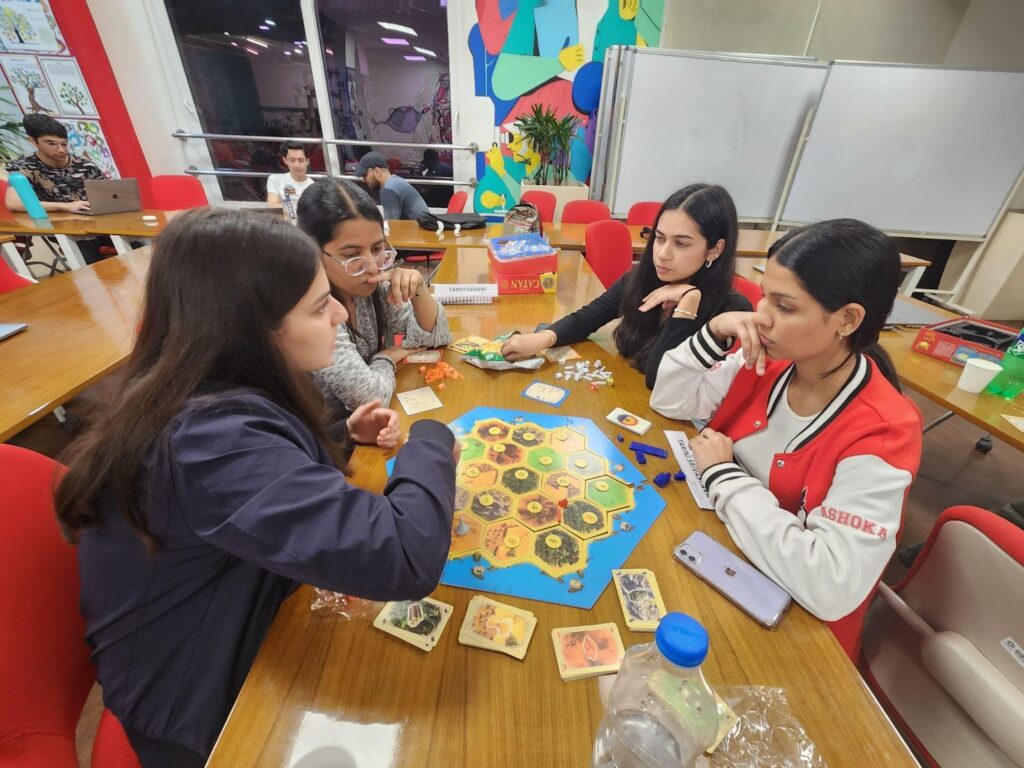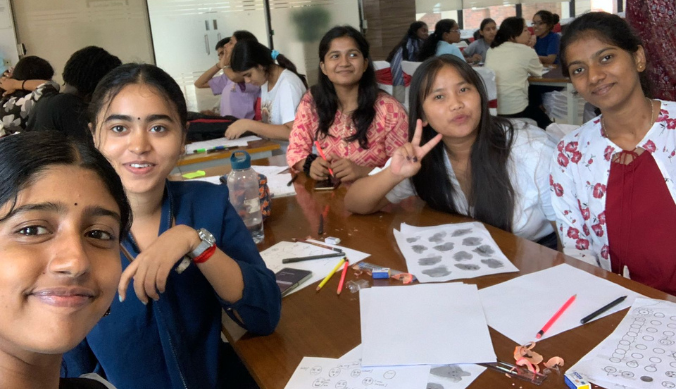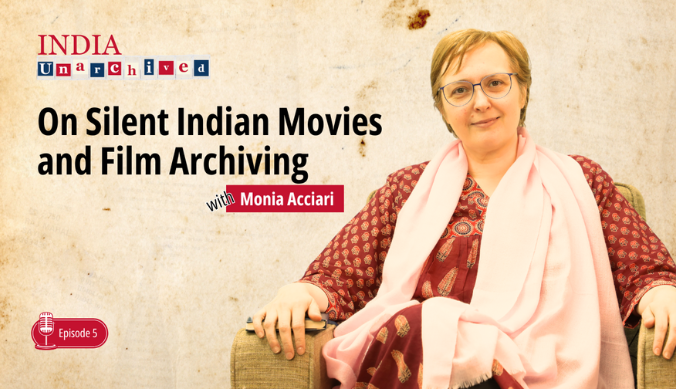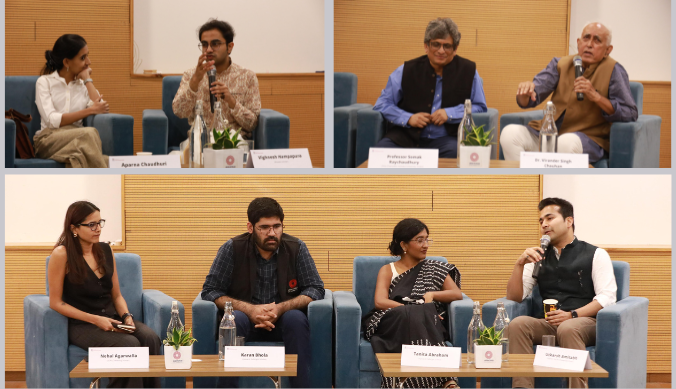Strategy through Board Games: Learning with Catan
Bilquis Calcuttawala shares their experience of learning strategies for negotiation and risk-taking in the business world through the game of Settlers of Catan in the course “Strategy through Board Games”
Picture this: you’re sitting around a table with your friends, strategizing and negotiating your way to victory in a game of Settlers of Catan. The tension is high as you carefully manage your resources, make calculated trades, and plot your next move. You’ve made enemies, begrudgingly formed alliances and at some point, you’re pretty sure you promised to do someone’s next assignment in exchange for 2 wheat cards. Suddenly it hits you – maybe this board game consuming your entire Sunday is actually teaching you important lessons. That’s right, Catan isn’t just a fun way to spend an evening with friends – it’s also a powerful tool for developing your skills as a future business leader.
The second session of Strategy through Board Games delved into Catan – the game that inspired the course in the first place. Led by Ashish Banka, Co-founder & CEO of Eggfirst, our class explored the universe of Catan with a whole new perspective. Catan is not your typical luck-based board game. Instead, it’s a strategic gem that can help teach valuable business tactics. In this game, players battle it out for land, resources, and settlements on a deserted island. One of the most challenging aspects of Catan and the business world is making informed decisions with limited information. It’s tough to predict what your rivals might do next or what surprises lie in store. Plus, both the game and the real world have an element of luck thrown in. The game presents players with a scenario that demands they maximize their limited resources to achieve their goals – a business-like scenario that is both fun and challenging.

Catan can also teach about risk-taking and adapting to changing circumstances. For example, in the game, players can take risks by investing in development cards, which may or may not pay off in the future. Similarly, in the business world, taking calculated risks can be a vital part of success.
Wood was scarce for the other players in the game, and I always traded wood for another resource (1:1) that I needed. This is where I applied the principle of BATNA (Best Alternative to The Negotiated Agreement). This helped me evaluate my options and negotiate effectively. I always kept a backup plan ready in case the trade did not go through, which also made me more calm and confident throughout the trading and negotiation process. In the rounds where the dice roll was not favourable, I did end up compromising on my original demands, but only if the renegotiated deal was superior to the BATNA and would not disproportionately benefit any other player. In the middle of the game, I either had to make a few compromised trades or stop expanding, I chose the former which worked out for me as I also ended up with the longest road. Additionally, I always kept an eye on what other players had in excess and what they needed, which helped me make strategic trades.
Furthermore, the 5Ps of strategy planning (Plan, Ploy, Pattern, Position) highlighted by Dr Ashish Banka throughout the lecture were extremely helpful for the game at the end of the session. I began by outlining all of my potential alternatives and the valuation associated with each of them. A crucial negotiation skill is evaluating each choice and recognizing what resources one’s opponents have. Finally, I always kept in mind not to expose my reservation point (a reservation point is the breaking point of the negotiation and at this point the deal will no longer be profitable for you). Having alternatives always aids in determining this.

As in Catan, the value of resources can change in the corporate/start-up world based on market demand, innovation, and competition. For example, the value of data has increased significantly in recent years as companies have realized its importance in driving business decisions and insights. Take the example of DataChat, a heavily data-based start-up: In the early stages, the most valuable resources were its founder’s skills, network, and reputation. As the company grows, the value may shift to its customer base, intellectual property, and brand equity. The company usually goes through several stages where the value of resources changes; a few of which include:
- Value creation (suppliers, development, technology),
- Value Proposition (people, planet, profit),
- Value Capture (cost structure, revenue streams) and
- Value delivery (customer segments, relationships, touchpoints).”
Overall, Catan and other board games can be excellent tools for teaching business strategy in a fun and engaging way. By combining education with entertainment, individuals can learn important concepts in a more practical and enjoyable way. So next time you find yourself playing Settlers of Catan, don’t just think of it as a way to pass the time – think of it as a training ground for your future career as a savvy business leader. So grab your friends, set up the board, and let the lessons begin as you navigate through strategy, risk-taking, and negotiation! Who knows, maybe you’ll be the one to build the longest road to success.
Written by Bilquis Calcuttawala (bilquis.calcuttawala@alumni.ashoka.edu.in)
“Strategy Through Board Games” was a 2 credit course, first offered in Spring Semester 2023, that engaged students with the nuances and complexities of the real world by rooting them in more familiar and approachable methods of learning – board games! Board games are a great way to learn through interactive and engaging activities. They offer a fun and relaxed learning environment that promotes active participation and helps students retain information better.
Study at Ashoka













